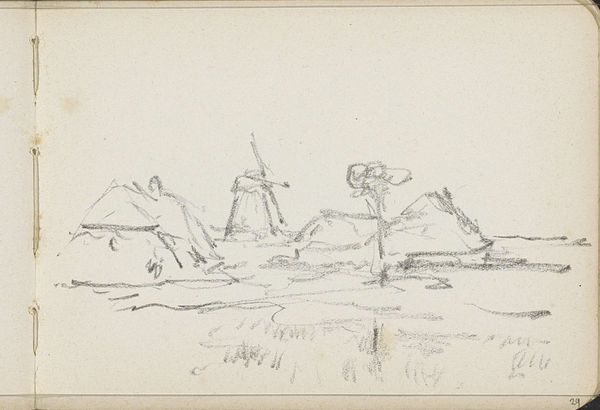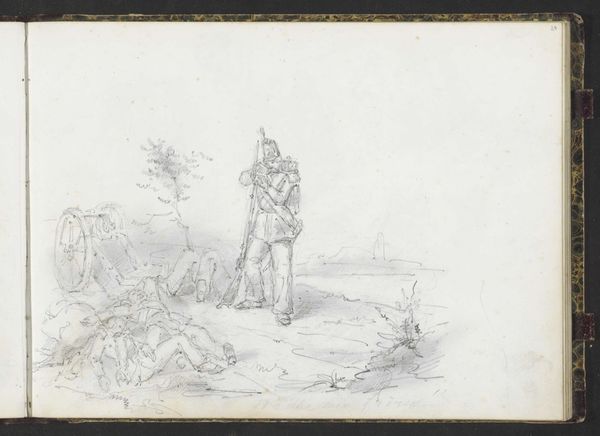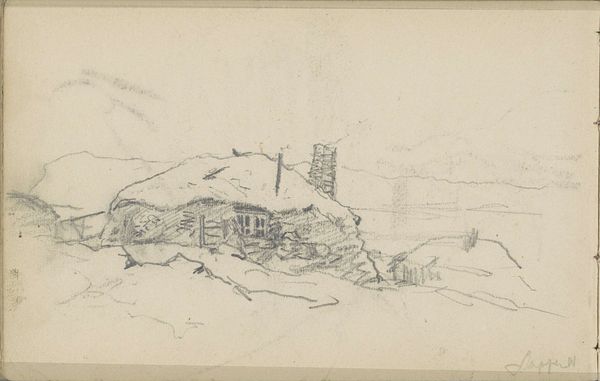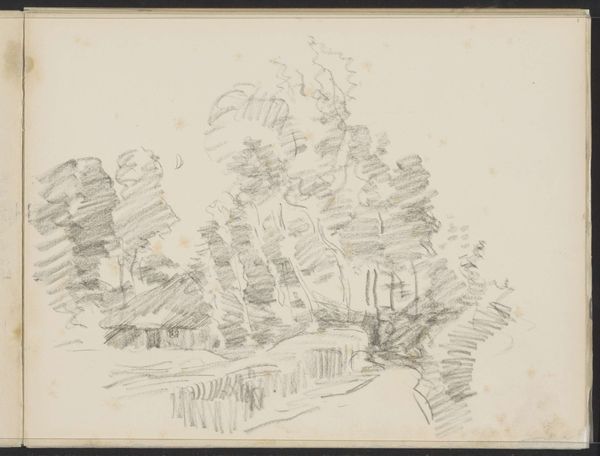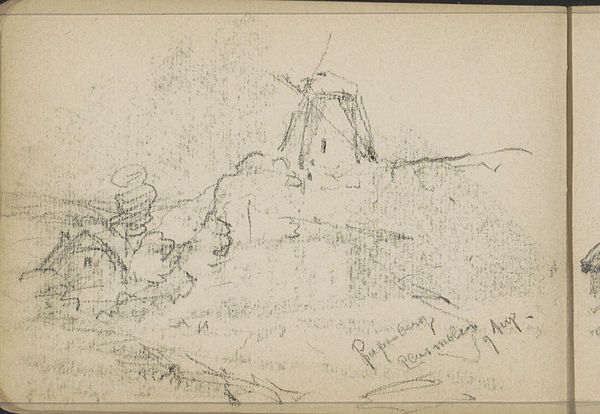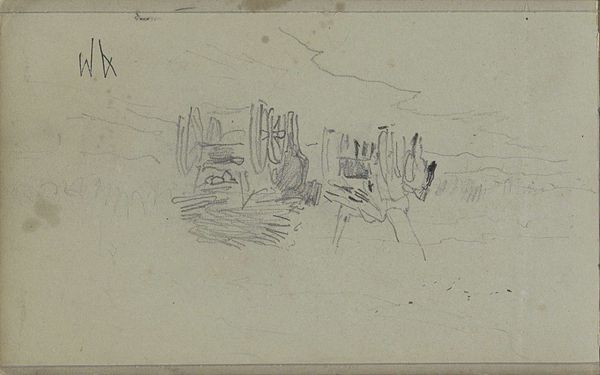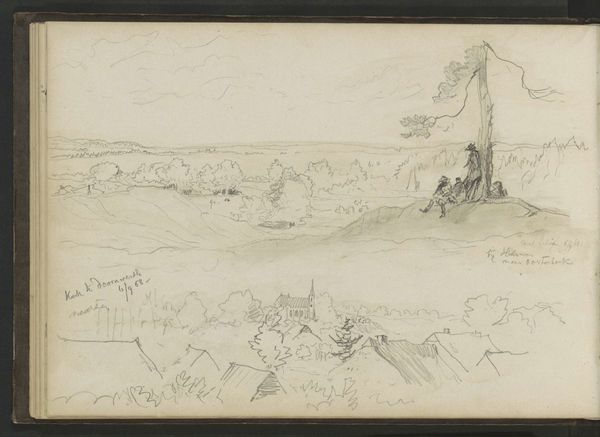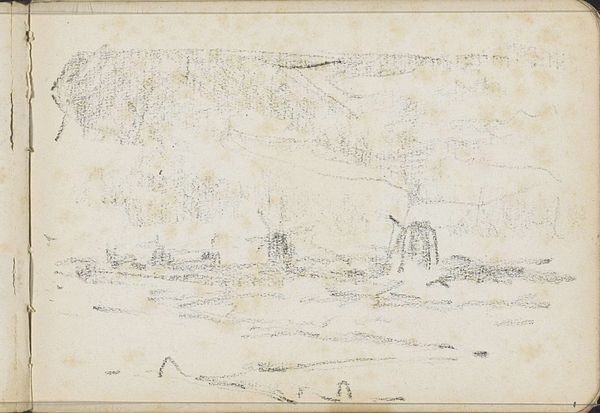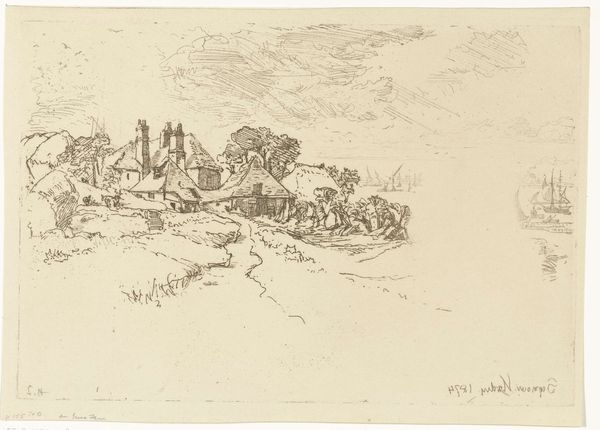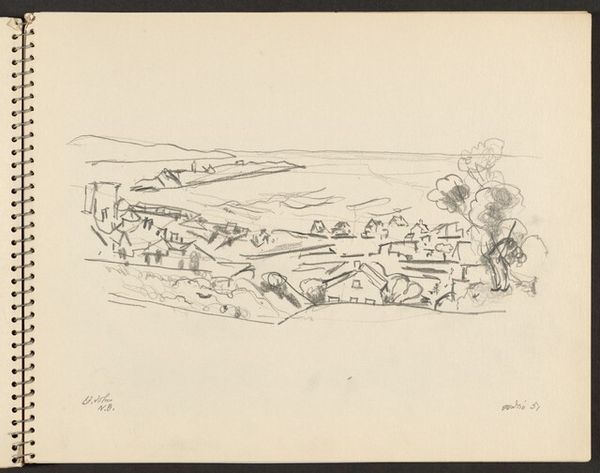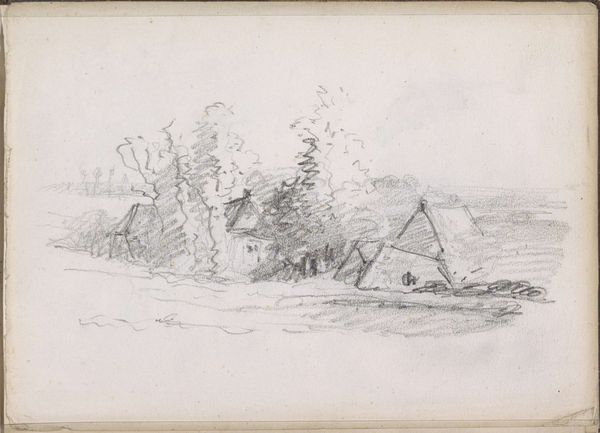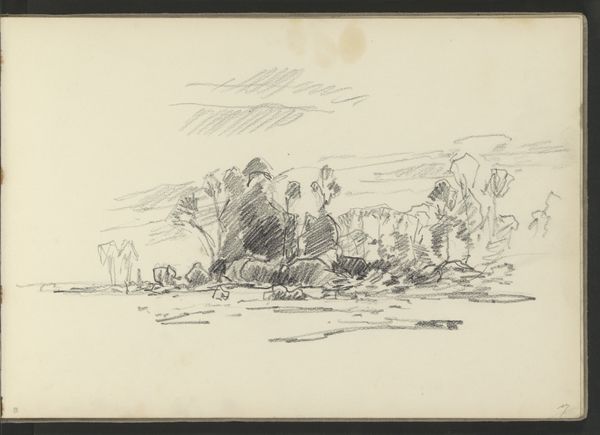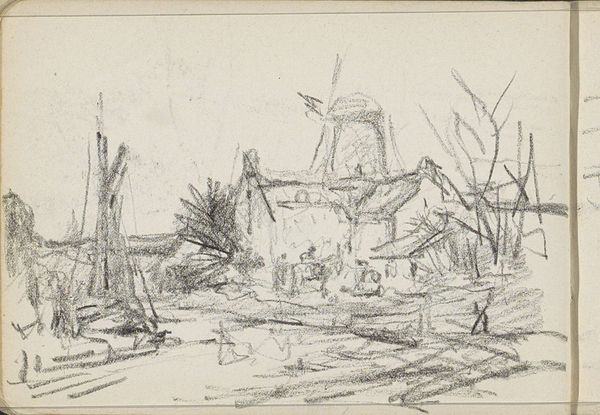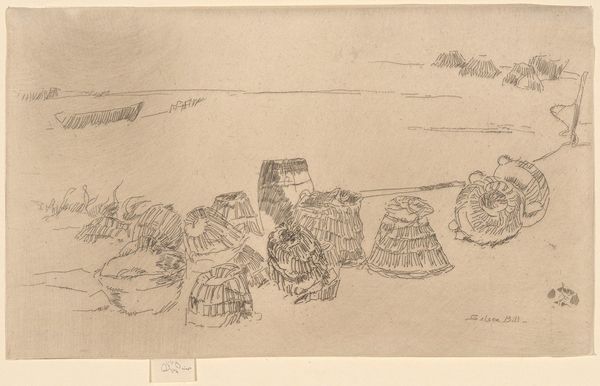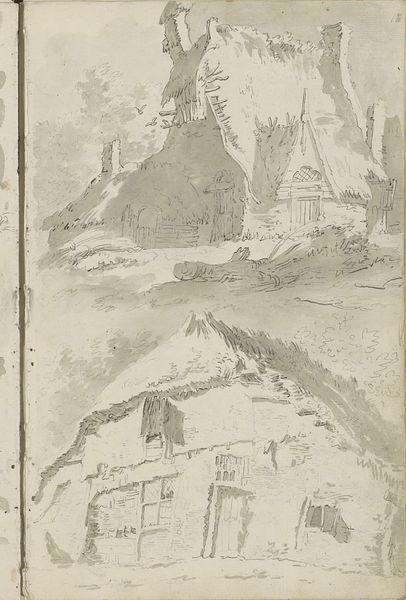
drawing, pencil
#
drawing
#
light pencil work
#
ink drawing
#
pen sketch
#
pencil sketch
#
landscape
#
personal sketchbook
#
ink drawing experimentation
#
pen-ink sketch
#
pencil
#
pen work
#
sketchbook drawing
#
sketchbook art
#
realism
Copyright: Rijks Museum: Open Domain
Johannes Tavenraat made this pencil drawing, "Stacks of Turf and Hay Bales," in the Netherlands in 1864. Tavenraat's choice to depict such a mundane scene raises questions about the social conditions that shape artistic production. Was he perhaps commenting on the economic structures of his time? The Dutch Golden Age had long passed, and the Netherlands was experiencing a period of relative decline in the mid-19th century. The simple, rural scene could be interpreted as a reflection of this shift away from urban prosperity. To understand this drawing better, we might research Dutch agricultural practices, economic history, and the art market of the time. How did artists make a living? Did they rely on patronage from wealthy elites, or were they more dependent on the open market? By situating Tavenraat's work in its historical context, we can begin to appreciate its complexities and nuances.
Comments
No comments
Be the first to comment and join the conversation on the ultimate creative platform.
